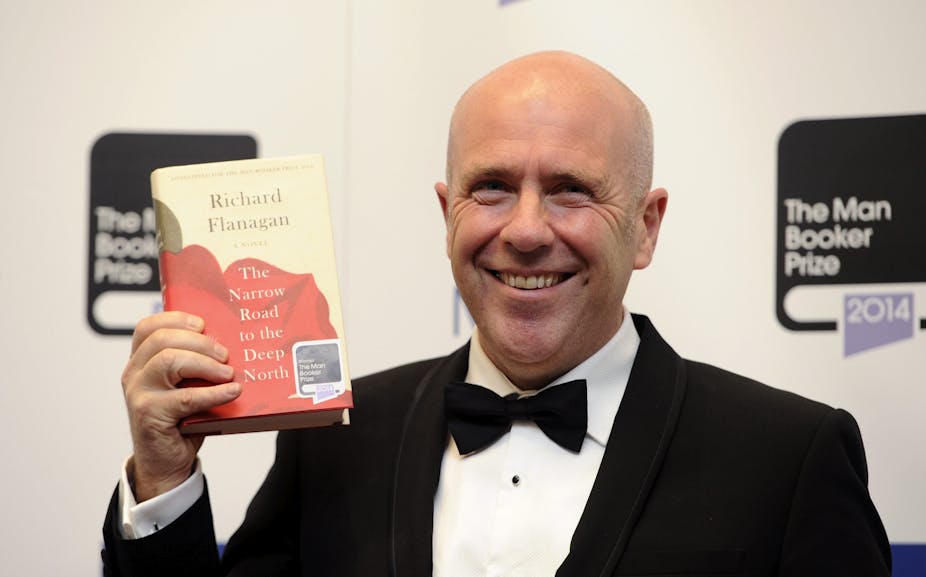Writing in the Bulletin in January 1899, Henry Lawson complained about the difficulties of making a living as a writer. In this article he offered the emerging author a piece of unvarnished advice:
[S]tudy elementary anatomy, especially as it applies to the cranium, and then shoot himself carefully with the aid of a looking-glass.
Lawson was indigent in London at the time. He would return to remain indigent in Sydney, ending up frail, haunted, mentally and physically ill until his death in 1922. He is buried in Sydney’s Waverley Cemetery in a grave that remains modest to this day, its location indicated by a rusty hand-painted sign.
It could be said that many of Lawson’s troubles were of his own making, and that individuals in Australia – commencing with his poet, activist and editor mother Louisa Lawson, who published his first book – found ways to support his career.
But one of Lawson’s enemies (and to him there were many) was Australian culture itself, unwilling to accept that the local product could be of any value.
In this Lawson was not alone and many authors suffered neglect or disdain simply because they were Australians writing about Australian themes. This was despite the efforts of critics and authors such as Nettie and Vance Palmer, who devoted themselves to nurturing Australian books and authors. Another was critic A.A. Phillips who, back in 1950 in an essay in Meanjin, invented the term “cultural cringe”.
In the six decades since, debate about the cultural cringe has raged intermittently but has never been extinguished. It’s one of those issues critics and commentators know will never go away, like whooping cough or chicken pox: despite society’s best efforts, it remains endemic with fiery outbreaks from time to time.
In part this cultural cringe as far as literature is concerned is the result of long years of overseas publishers owning the territory, to the extent that in the 1950s authors such as Dymphna Cusack fought for their right to earn more than the “colonial” royalty rate (which was then half of the normal one) for the privilege of having their books sold in their own country.
Apart from the significant presence of Angus and Robertson, a local literary publishing industry did not begin to develop until well after the second world war. And even then the London-New York publishing cartel decided that Australia as a former colony would not get to control any of the global territory.
Australian literature has thus often been handicapped. That is some of the context for why we still feel the need to debate its value. And why Australian books are so often dismissed or overlooked.
Were Henry Lawson writing today it is unlikely his books would ever feature on the ABC television program The Book Club. Possibly someone would wave a copy of While the Billy Boils dismissively and wonder if he was ever going to transcend the limitations of his subject matter and write about something other than the bush.
In 2014, when yet another Australian author – Richard Flanagan – has won the Man Booker Prize, it seems almost ridiculous to be arguing, yet again, for the place of our own literature in our own culture. But here is another another flare-up of the cultural cringe virus.
It is understandable that Martin Shaw, writing in the Guardian about The Book Club, should ask the questions he did of this show. Why does the country’s only free-to-air book program, run by the national broadcaster, essentially ignore the local product?
This year one Australian book has been featured, Paddy Reilly’s The Wonders, dismissed by one panellist as “terrible” (elsewhere, it has received positive reviews).
While it’s not the brief of the book review to promote a particular book or author, surely it’s in the interests of everyone involved in the literary business to engage deeply and broadly with the books it produces. In Paris or New York do academics, literary journalists and critics ignore their own literature, or worse: debate its merits as opposed to overseas literature?
It is unimaginable that Manhattan’s version of The Book Club features a title by Christina Stead as its weekly classic, then Georgia Blain and Steven Carroll as its recent authors, to end up with someone waving a copy of local author Lorrie Moore’s latest collection and saying it’s terrible, maybe complaining about her overuse of exclamation marks.
I ask all my new creative writing students this: what Australian title are you reading or have recently read? If their answer is none, I point out the symbiosis of the relationship, and what to me is very obvious: if they as Australians want to be authors – published and read and even taken seriously – they need to do the same to existing authors.
I suspect if Henry Lawson was watching The Book Club he’d be reaching out for that looking glass and a gun.

